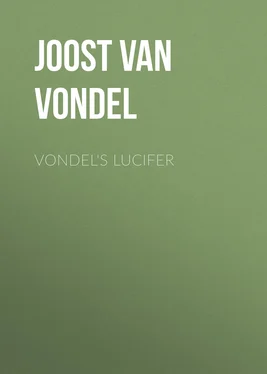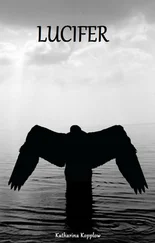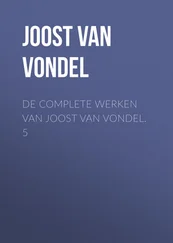Joost Vondel - Vondel's Lucifer
Здесь есть возможность читать онлайн «Joost Vondel - Vondel's Lucifer» — ознакомительный отрывок электронной книги совершенно бесплатно, а после прочтения отрывка купить полную версию. В некоторых случаях можно слушать аудио, скачать через торрент в формате fb2 и присутствует краткое содержание. Издательство: Иностранный паблик, Жанр: foreign_dramaturgy, Драматургия, foreign_antique, foreign_prose, на английском языке. Описание произведения, (предисловие) а так же отзывы посетителей доступны на портале библиотеки ЛибКат.
- Название:Vondel's Lucifer
- Автор:
- Издательство:Иностранный паблик
- Жанр:
- Год:неизвестен
- ISBN:нет данных
- Рейтинг книги:5 / 5. Голосов: 1
-
Избранное:Добавить в избранное
- Отзывы:
-
Ваша оценка:
- 100
- 1
- 2
- 3
- 4
- 5
Vondel's Lucifer: краткое содержание, описание и аннотация
Предлагаем к чтению аннотацию, описание, краткое содержание или предисловие (зависит от того, что написал сам автор книги «Vondel's Lucifer»). Если вы не нашли необходимую информацию о книге — напишите в комментариях, мы постараемся отыскать её.
Vondel's Lucifer — читать онлайн ознакомительный отрывок
Ниже представлен текст книги, разбитый по страницам. Система сохранения места последней прочитанной страницы, позволяет с удобством читать онлайн бесплатно книгу «Vondel's Lucifer», без необходимости каждый раз заново искать на чём Вы остановились. Поставьте закладку, и сможете в любой момент перейти на страницу, на которой закончили чтение.
Интервал:
Закладка:
Tesselschade was now thirty years of age, and had lost none of the extraordinary beauty of early youth. Deep golden hair, of which each tiny thread seemed just the string for Cupid's bow; large dark eyes, darting rays of love, and deep with infinitudes of tenderness; a low but broad, smooth forehead of marble whiteness; an exquisite mouth; a decided chin that spoke of a will reserved; a chiselled nose with delicate, sensuous nostrils—these were the most striking features of a face that was as remarkable for its earnest and captivating expression as for its great beauty and radiant intelligence. Add to this a glowing complexion of wonderful purity, and a slender but symmetrically-shaped figure, and you have a picture of the most beautiful and talented woman of her generation.
All the poets honored the bride with their choicest verses. Elevated as was Vondel's epithalamium, sweet and graceful as was Hooft's, agreeable as were the many other poems that the occasion inspired, the young Constantine Huyghens wrote a eulogy in a tender and delicious strain that surpassed them all.
At Alkmaar the happy couple had an ideal home, exquisitely furnished with pictures and embroidery done by the skilful hands of Tesselschade herself. Here, with art and music, in the midst of the amenities of domestic life, she lived many happy years.
Tesselschade, however, did not give up her passion for poetry. She continued her relations with the charming circle of her admirers, and corresponded with Hooft in Italian.
Even before her marriage she had begun translating the "Gerusalemme Liberata" of Tasso; and now, with the aid of Hooft, the best Italian scholar in the Netherlands, she continued this absorbing work. This version was never printed, and has, unfortunately, been lost.
In 1622 her sister Anna, the friend and correspondent of Rubens, visited Middelburg, the capital of Zealand, where she met the shining lights of the School of Dort, as the didactic writers of the day were called. At the head of these was the celebrated Father Cats—the poet of the commonplace—the most popular, though by no means the greatest, poet of the Netherlands. Simon van Beaumont, the governor, a lyrist of some talent; Joanna Coomans, called the "Pearl of Zealand;" and Jacob Westerbaen also gave her sweet welcome.
Attentions were showered on the honored guest, and her visit gave occasion to that well-known collection of lyrics entitled "The Zealand Nightingale," which was dedicated to her. Upon her return from Zealand, Anna was also married, and from this time forth she slowly ceased her literary relations with the School of Amsterdam, and now gave herself entirely up to domestic duties.
Not so Tesselschade. Her imagination was too intense, her conceptions too vivid, to find any attraction in the realistic didacticism of the Catsian circle. Her muse was not to be restrained by household cares. Her friendship with Hooft and Vondel remained unbroken; and we shall have occasion to meet her again.
Since his "Palamedes," Vondel, overwhelmed with his strange depression, had written but little. In 1630 he burst into a blaze of satire that swept the country like a whirlwind of flame. His poems of this year were entitled Haec Libertatis Ergo , and were of unsparing severity. "The evils of the time," said the poet, "are too deep-seated to be eradicated by a poultice of honey." Like Juvenal and Persius, he did not spare the knife, although he knew that every thrust only made his enemies more bitter and his own position more uncomfortable. His absolute fearlessness was the theme of admiration, not only among his friends, but even among his enemies. The higher the person, the stronger his invective; the more powerful the object of his dislike, the more cutting the edge of his sarcasm.
Never was satire so crushing and at the same time so keen; never mockery so unanswerable, polemic so overwhelming.
A Titan had thrown mountains of irony upon the heads of a thick-skulled generation of vipers. Their discomfiture was so complete that not even a hiss broke from the silence of their annihilation. The whited sepulchres of the sovereign hypocrites of the Republic now stood black as night in the face of noon.
Though a fiery patriot and an enthusiastic adherent of the House of Orange, Vondel received but little favor at the hands of Frederic Henry. This was probably due to the poet's unpopularity with the clergy, and to the hatred that he had excited among the Church party in power—the uncompromising Contra-Remonstrants, whose enmity the Stadholder would doubtless have incurred by an open friendship with aman whose avowed determination it was to accomplish their downfall.
About this time occurred the death of William van den Vondel, a younger brother of the poet, whom he loved most tenderly. This youth had been educated in France and Italy, and possessed extraordinary gifts and many accomplishments. He had also written some poems of great promise, but was now cut off in the flower of his youth by an insidious malady that he had brought with him from Italy, a sickness thought by many to have been due to poison.
The poet never ceased to mourn this idolized brother, and almost half a century later he was heard to say: "I could cry when I think of my brother. He was much my superior."
In the same year Vondel made a journey to Denmark in the interest of his business. Upon his return journey he was the guest of Sir Jacob van Dÿk, the minister from the Court of Sweden to The Hague.
At Van Dÿk's country seat in Gottenburg he wrote a poem in honor of Gustavus Adolphus. This production is chiefly remarkable as foreshadowing several important political events. He prophesied that the great Swede would attack the Emperor of Rome, tread upon the neck of Austria, and bring the Eternal City itself into a panic of fright—all of which happened within four years. He was, however, silent as to the fate of the King, and said nothing about his tragic death in the hour of victory.
So we here, also, see Vondel in the capacity of the classic vates and of the Hebrew seer. Before his piercing ken even the time to come delivered up its hoarded secrets. The past, the present, and the future were the provinces of the grand empire reigned over by his kingly spirit.
The old Chamber of the Eglantine had now fallen into a decline. Many of its choicest spirits had gone over to Coster's Academy; the others, Vondel and his friends, as has already been related, were accustomed to meet for mutual help and criticism at the hospitable home of the Visschers.
After this charming home was broken up, the literary centre of the Amsterdam School was changed to the Castle of Muiden, a few miles from the metropolis.
At the Visschers' the budding talent of the country had been carefully nurtured and placed in the warm sunlight of a mutual and invigorating sympathy; at Muiden, however, it was seen in its full flower.
It was here that the literary genius of the Netherlands reached its highest efflorescence; nor has it ever again reached the sublime standard of those golden days.
Soon after being appointed Judge of Muiden, Hooft had rebuilt the old castle; and now it stood, a romantic structure, crowned with turrets and towers. It was picturesquely situated on an island in the centre of a small lake. A feudal drawbridge connected it with the outside world, and it was embowered in lofty trees and surrounded by gardens and orchards.
There is no more charming picture in literature than that of the aristocratic host of Muiden, with his handsome, intelligent face and his elegant manners, in the midst of his guests, the genius and the flower of the Netherlands—a scene rendered still more interesting by the presence of talented and beautiful women.
Here, beneath the shade of the spreading lindens and the noble beeches, they would lighten the heavy summer hours by games and conversation, and by the discussion of affairs of state.
Читать дальшеИнтервал:
Закладка:
Похожие книги на «Vondel's Lucifer»
Представляем Вашему вниманию похожие книги на «Vondel's Lucifer» списком для выбора. Мы отобрали схожую по названию и смыслу литературу в надежде предоставить читателям больше вариантов отыскать новые, интересные, ещё непрочитанные произведения.
Обсуждение, отзывы о книге «Vondel's Lucifer» и просто собственные мнения читателей. Оставьте ваши комментарии, напишите, что Вы думаете о произведении, его смысле или главных героях. Укажите что конкретно понравилось, а что нет, и почему Вы так считаете.












